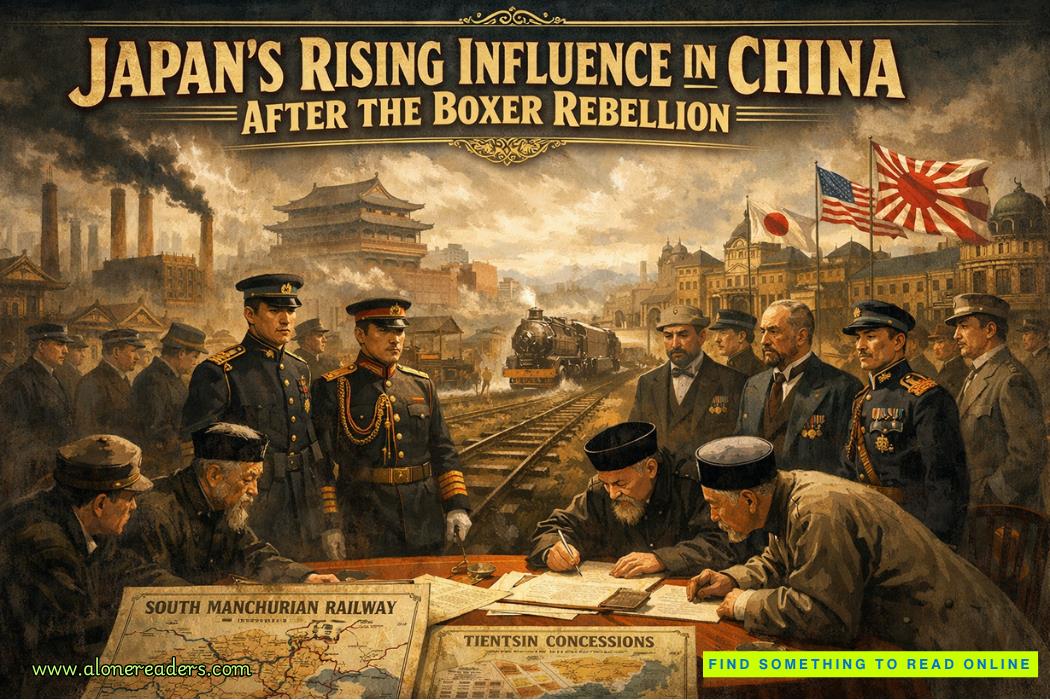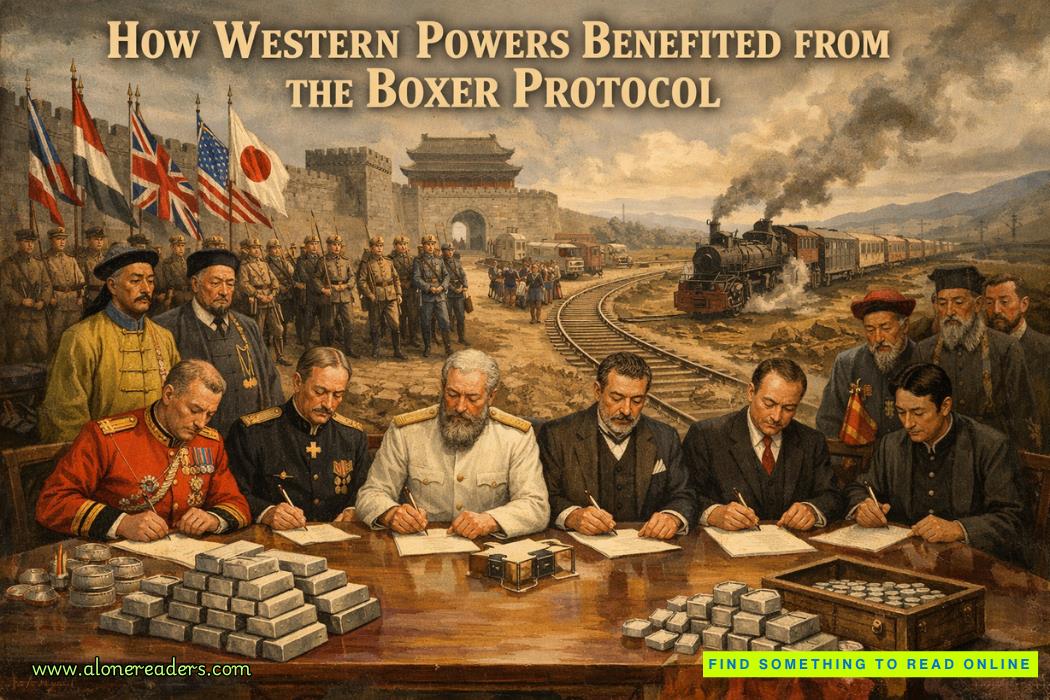And while I shoot off ingredients from the top of my head and avoid Mrs.Byrd’s gaze, Oliver looks purposefully oblivious to her shooting looks and fills his arms with the items from the fridge.
“C’mon,” he says, and to my surprise, starts walking toward a swinging back door I hadn’t noticed before.
My relief must’ve been visible, because the second we step through the swinging door, he says, “Sorry about that. Mrs.Byrd can be a little... touchy.”
“Oh no.” I wave it off quickly. “I came into her kitchen. The right is entirely hers.”
We go through a narrow passageway lined on either side with food stock and through another door where we come to another little hall. A red door stands at the far end, with a brass lock and knob, and we pass it.
Oliver’s phone rings, and he ignores it. “If it makes you feel any better, I think I’ve spent half my life being pushed out of the kitchen by her with a broom. Of course, back then I completely deserved it.” He grins at me, and I grin back at the image of Oliver as a child, pockets stuffed with stolen cookies.
“I’ve heard some of the stories. So tell me, did you really try to strap yourself to the roof?”
“I went through a Clint Eastwood phase in high school.”
“Including getting yourself killed on a train going 150 miles an hour? Nice. Very teen thinking of you.”
“Well, what was I going to do? Run away and hop on a train?” A smile flits on Oliver’s lips as he glances over his shoulder while adjusting the eggs in his arms. “But seriously, how much could you and Dad possibly have talked?”
“Oh”—I shrug, a mischievous smile lifting of my own—“just enough to be dangerous. If I were you, I’d consider throwing some extra marshmallows in my cocoa and arranging for some one-horse open sleigh lifts to excursions to keep me from talking to the other passengers—”
“Horse-drawn sleighs are what it takes to win you over, eh?” Oliver stops at another door, same red, same brass knob. He moves to reach for his pocket, no doubt for the keys, but with the bundle in his hands, he struggles.
I tingle at his words but quickly brush them aside.
“Here.” I take the eggs and the green and red peppers and the mushrooms from his hands.
I must admit, it makes me feel a little special standing back here in the tiny hallway. No “Frosty the Snowman”playingover the speakers. No elaborate carpeting or golden tassels and elves rushing around with silver platters. Just the quiet rumble of the train moving underfoot, and the rush of a pale winter sunrise dancing on the walls. Handfuls of groceries. And just Oliver and me.
It’s funny. As special as that suite was, this is even better.
I’m not sure what I expected out of Oliver’s cabin, but the moment I step inside, I know it wasn’t this. Whereas the suite was like a holiday page from a catalog, Oliver’s room looks... normal. Beneath a row of large windows is a cognac-tan couch, well-worn but in the kind of way that invites sitting. A bookshelf and television sit next to the opposite wall, but instead of seeing a row of comic books and animals in cages, I’m looking at a healthy dose of westerns and travel books interspersed with a few board games with tattered edges and the evidence of group hangouts. A bed lies on the opposite wall with a crumpled gray comforter lying on top, not yet—or who knows? Perhaps never—made. A treadmill is pushed in the corner directly to my left. And straight across from me is a row of kitchen cabinets, a tiny stainless-steel sink, and an even tinier oven range so small it looks like an Easy-Bake Oven. We move toward it.
Oliver’s phone rings again, and I fully expect him to check it, pull a face about whatever disaster was happening on board needing saving, drop the ingredients off on the small countertop, and wish me luck.
But he doesn’t.
Subtly, he just silences it.
“So,” I say, setting the peppers and eggs on the counter, “is this where you live all the time?”
“Oh no. I have a little place in San Francisco right now. We follow a two-week on, two-week off system, and I run a lot of tours from there. Plus, I like the sunshine.”
I nod. “Yes, I’ve always wanted to visit San Francisco—especially on those twenty-degree days in February. It’s on my bucket list.”
“Too bad we’ll miss it this time,” Oliver says, and opens a drawer full of knives. “Knife?”
“Please.” I select a serrated one. I begin to feel self-conscious and say, “Hey, if you want to leave me the key, I can be sure to lock up. After all, it’s not like I can really escape if I turn out to be a klepto—”
But before I can even finish my sentence, he’s selecting his own knife from the drawer and shutting it. As his now-silenced phone begins to hum as it vibrates in his pocket, he says, “I’d be a poor conductor if they couldn’t do without me for thirty minutes. So. What are we making?”
Part of me feels selfish. Part of me knows I ought to press him, telling him I know how busy he is and how I can handle it. How I’m well aware of how he takes the brunt of the work leading excursions by night and managing the train’s activities and general chaos of the day. Part of me knows this.
But another part of me...
Well, he’s a grown man, isn’t he? He can make his own decisions.
And as if to solidify the moment, my own phone rings.















